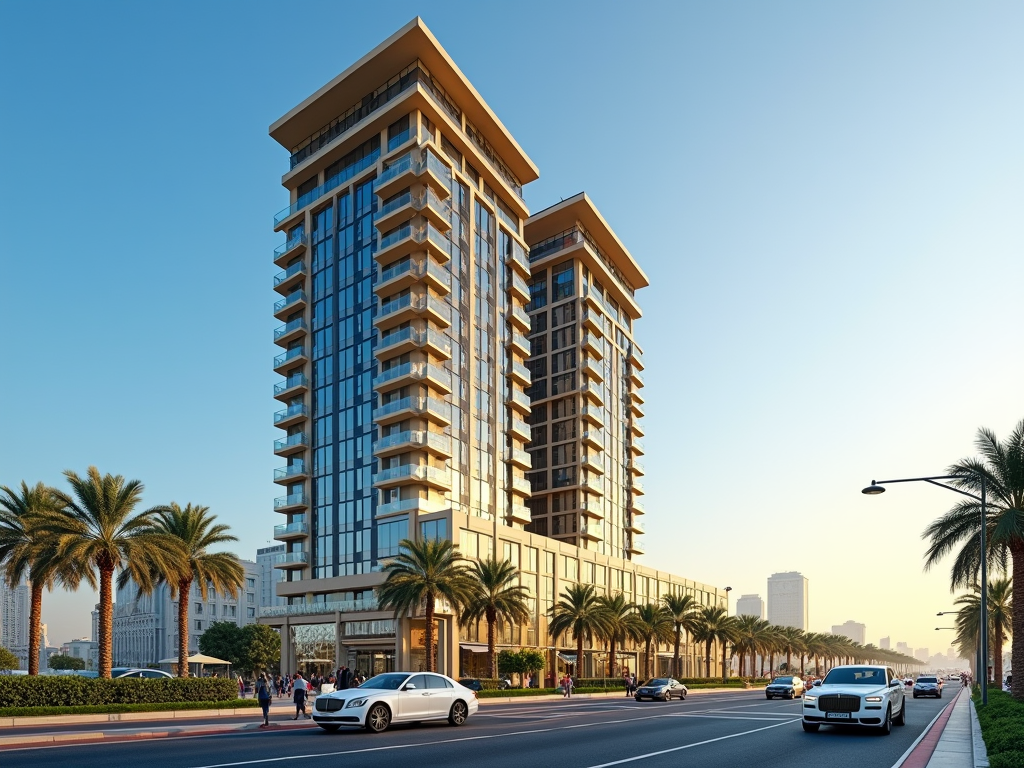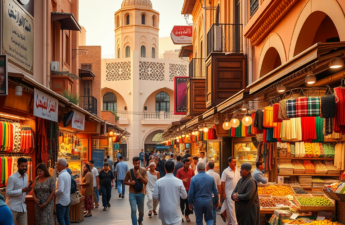Building a successful real estate investment portfolio in Dubai involves strategic planning, thorough research, and an understanding of the dynamic market landscape. To maximize returns, investors should focus on high-demand areas, leverage local expertise, and diversify their assets. This article will explore the essential steps and considerations to keep in mind, ensuring you develop a robust investment portfolio that thrives in this vibrant city.
Understanding the Dubai Real Estate Market

Before diving into property investment, it’s crucial to have a comprehensive understanding of the Dubai real estate market. The market is known for its rapid growth and unique investment opportunities. Key aspects to consider include:
- Market Trends: Keep a close watch on market developments, including regulations, property values, and rental yields.
- Location: Identify neighborhoods with high potential for growth, such as Dubai Marina, Downtown Dubai, and Jumeirah Village Circle.
- Target Audience: Know your potential tenants or buyers, whether they are expatriates, tourists, or wealthy individuals.
- Investment Type: Decide whether you want to invest in residential, commercial, or mixed-use properties.
Understanding these factors will help you make informed decisions, aimed at optimizing your investment within the Dubai landscape.
Creating a Solid Investment Strategy

A well-thought-out investment strategy is paramount for success in real estate. Here are some critical steps to consider:
- Define Your Goals: Determine whether you’re aiming for short-term gains through flipping properties or long-term income through rental investments.
- Set a Budget: Establish a realistic budget, factoring in additional costs such as maintenance, property management, and taxes.
- Research Financing Options: Understand your financing options, including bank loans, partnerships, or personal savings.
- Diversify Your Portfolio: Investing in different types of properties can mitigate risks and ensure steady returns.
- Consult Professionals: Consider hiring real estate agents, financial advisors, and property managers to guide your journey.
By having a clear strategy in place, you’ll be more equipped to navigate challenges and seize opportunities as they arise.
Legal Considerations for Investors
Investing in real estate requires navigating local laws and regulations. It’s vital to ensure compliance to avoid legal pitfalls. Here are some vital legal considerations:
- Know Your Rights: Familiarize yourself with ownership rights, tenancy laws, and regulations affecting foreign investors.
- Due Diligence: Conduct thorough background checks on properties, ensuring they are free from debts and legal issues.
- Secure Legal Representation: Engaging a lawyer who specializes in real estate can protect your interests and simplify the process.
- Understand Tax Implications: Be aware of applicable taxes such as property tax and VAT on property transactions.
Understanding the legal framework is essential for safeguarding your investments and ensuring compliance with local regulations.
Building a Network of Professionals
Building a network in the Dubai real estate market can significantly enhance your investment prospects. Here’s how you can establish valuable connections:
- Join Real Estate Groups: Engage with local real estate investment groups and forums to share experiences and insights.
- Attend Networking Events: Participate in seminars, workshops, and conferences focused on real estate investment.
- Connect with Local Agents: Collaborate with knowledgeable agents who understand the nuances of the Dubai market.
- Engage with Property Managers: Consider property management services to help maintain your investment while optimizing rental income.
A strong network not only provides valuable information but also opens doors to investment opportunities and partnerships.
Finalizing Your Investment Portfolio
Once you have acquired properties and implemented your strategy, the focus shifts to managing and expanding your portfolio effectively:
- Regularly Review Performance: Monitor the performance of your properties and make necessary adjustments to maximize returns.
- Stay Informed: Keep abreast of market trends and changes that could affect property values.
- Consider Expansion: Look for additional properties that align with your investment goals.
- Evaluate Exit Strategies: Plan for potential exits, whether through selling properties or diversifying into other markets.
A proactive approach to managing your portfolio will ensure long-term success and sustainable wealth accumulation in the dynamic Dubai real estate market.
Conclusion
Building a successful real estate investment portfolio in Dubai requires understanding the market, crafting a strong action plan, adhering to legal requirements, and establishing a network of professionals. By focusing on these key elements and actively managing your investments, you can achieve considerable returns and establish a solid foundation for your financial future in one of the most promising real estate markets globally.
Frequently Asked Questions
1. What is the best area to invest in real estate in Dubai?
Areas like Dubai Marina, Downtown Dubai, Jumeirah Lake Towers, and Jumeirah Village Circle are frequently recommended due to their high demand and potential for appreciation.
2. Do I need to be a UAE resident to invest in Dubai real estate?
No, foreign investors can purchase property in designated areas without being UAE residents, but understanding local regulations is crucial.
3. How much capital do I need to start investing in Dubai real estate?
The capital required can vary significantly based on the property type and location, but it’s advisable to have at least 20% of the property’s value as a down payment, plus additional funds for fees and maintenance.
4. What are the common risks associated with real estate investment in Dubai?
Risks include market fluctuations, property maintenance costs, changes in regulations, and rental market trends. Thorough research can help mitigate these risks.
5. How can I ensure a good return on my real estate investments?
To ensure a good return, focus on location, monitor market trends, maintain the property well, and consider professional property management services.



